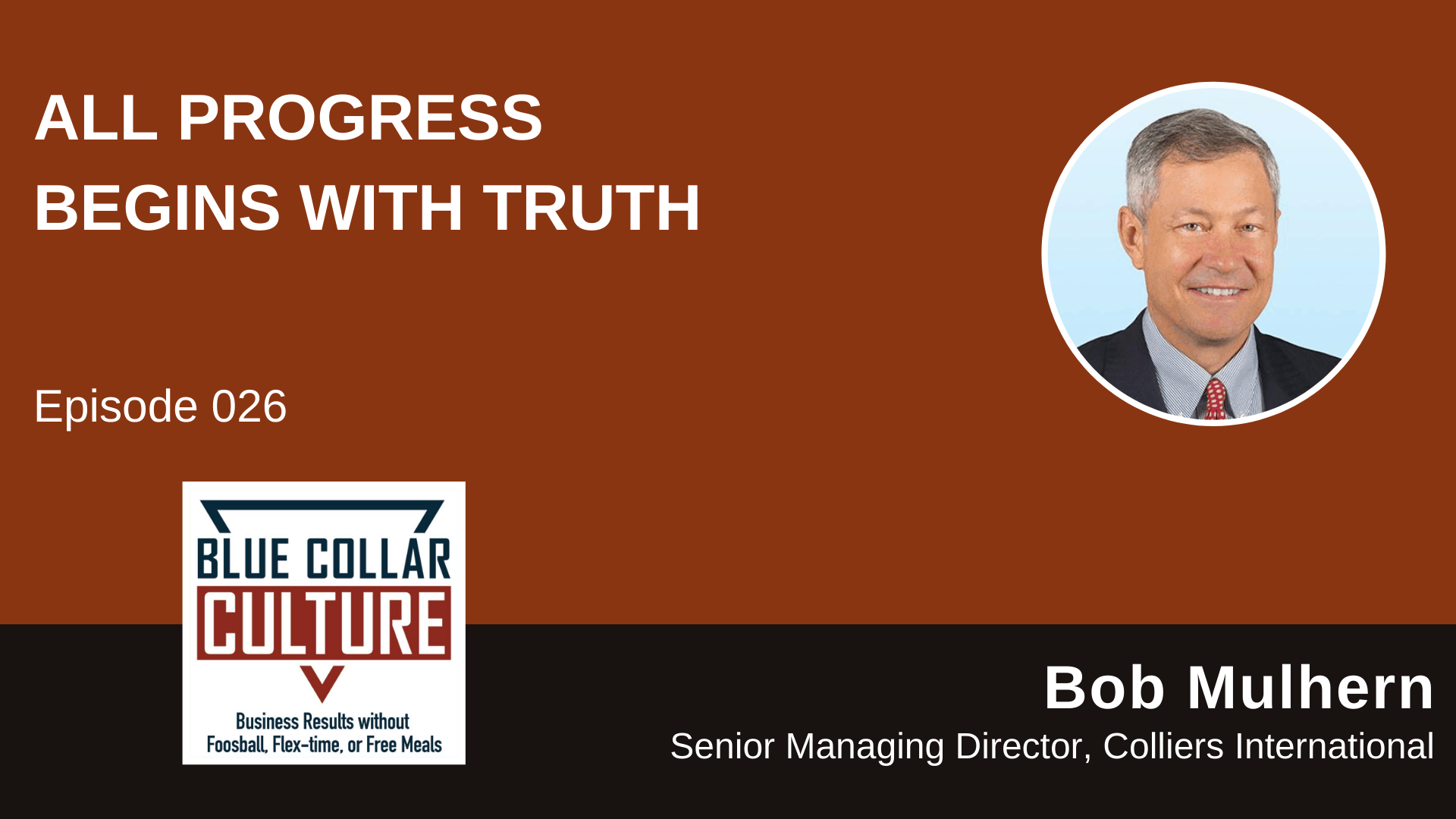For Bob Mulhern, senior managing director brokerage operations in Arizona for Colliers International, the success of his firm – and the high esteem in which it is held by the industry – all comes down to company culture.
It’s a defined mission statement based on core values that attracts like-minded top talent and keeps those who won’t be a good fit away. In fact, Bob says he often turns away high performers who won’t take the company culture to heart.
Bob takes the time to outline in detail how he implements company culture, including the tough conversations he must sometimes have with team members who don’t “get it.”
We also talk about…
- Recognizing effective commercial real estate brokers – if they don’t ask this… then walk away
- His tips for having “hard” conversations with your team
- Hiring strategies to form a team of employees that can execute your vision
- The power of Endless Reciprocal Learning
- Questions experienced commercial real estate brokers should ask clients
- And more
Listen now…
Mentioned in this episode:

